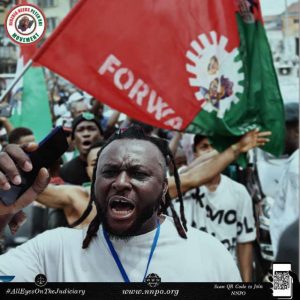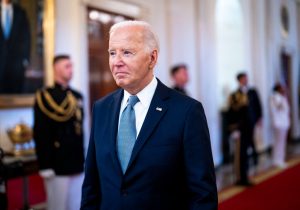10 generals guilty of arming Boko Haram

KADUNA, Nigeria (AP) — Ten generals and five other senior military officers have been found guilty in courts-martial of providing arms and information to Boko Haram extremists, several Nigerian newspapers said Tuesday, though the military insisted there was no truth in the reports.
They follow months of allegations from politicians and soldiers who told The Associated Press that some senior officers were helping the Islamic extremists and that some rank-and-file soldiers even fight alongside the insurgents and then return to army camps. They have said that information provided by army officers has helped insurgents in ambushing military convoys and in attacks on army barracks and outposts in their northeastern stronghold.
Leadership newspaper quoted one officer saying that four other officers, in addition to the 15, were found guilty of “being disloyal and for working for the members of the sect.”
Defense Ministry spokesman Maj. Gen. Chris Olukolade, who last week denied reports saying senior officers were being investigated, reiterated in a statement on Tuesday that defense headquarters “wishes to state once again categorically that there is no truth whatsoever in the report.”
He called it a “falsehood” concocted by those who “appear hell-bent on misleading Nigerians and the international community to give credence to the negative impression they are so keen to propagate about the Nigerian military.”
Nigeria’s military often denies substantiated reports, such as on extrajudicial killings of civilians and detainees. It is accused of such gross human rights violations that the U.S. efforts to help in the rescue of nearly 300 abducted schoolgirls have been limited by U.S. law restricting sharing of some types of information and technology with abusive security forces.
The alleged sabotage by senior officers could explain the military’s failure to curb a 5-year-old Islamic uprising by Boko Haram that has killed thousands despite a year-long state of emergency in the northeast.
Boko Haram has attracted international condemnation and U.N. sanctions since its April 15 abduction of more than 300 schoolgirls, of whom 272 remain captive.
Nigerian activists pressing the government to rescue the schoolgirls filed a complaint Tuesday against a police ban on protests.
“We filed a complaint that the police don’t have any right to stop people from expressing themselves,” said community leader Pogu Bitrus of Chibok, the town from which the girls were abducted.
The protests have “degenerated” and are “now posing a serious security threat,” Abuja police commissioner Joseph Mbu said in a statement Monday banning all protests in the capital related to the topic.
The Socio-Economic Rights and Accountability Project, SERAP, said such a ban violates basic rights under the Nigerian constitution.
However, Nigerian police on Tuesday said they had not ordered a ban on peaceful assemblies or protests in Nigeria.
“The Police only issued advisory notice, enjoining citizens to apply caution in the said rallies,” the statement said. “Citizens are strongly advised to reconsider their positions on the issues of rallies and protests” given the current threats by militants.
The kidnapping crisis has highlighted Nigeria’s failure to curb Boko Haram’s uprising.
Leadership newspaper on Tuesday quoted military officers saying the 15 allegedly found guilty of providing arms to Boko Haram are among many more being tried at divisional level. The verdicts are being referred to defense headquarters in Abuja, the capital, where the fate of the officers will be decided, the newspaper said. The officers it quoted spoke on condition of anonymity because they are not allowed to give information to reporters.
President Goodluck Jonathan said last year that he believed that some members of the military and even of his own government, including some Cabinet ministers, sympathized with Boko Haram or belonged to the group. Jonathan in January fired his entire military command and weeks later replaced the defense minister.
His government and military have been harshly criticized for lack of action that has led to the schoolgirls’ prolonged captivity. Defense chief Air Marshal Alex Badeh said last week the military knows where they are being held but fears to use force as it could get the girls killed. Jonathan is under increasing pressure to make a deal with the insurgents, who are demanding he free detained fighters in return for the girls.
___
Associated Press reporter Maram Mazen in Lagos, Nigeria contributed to this report.
![]()





